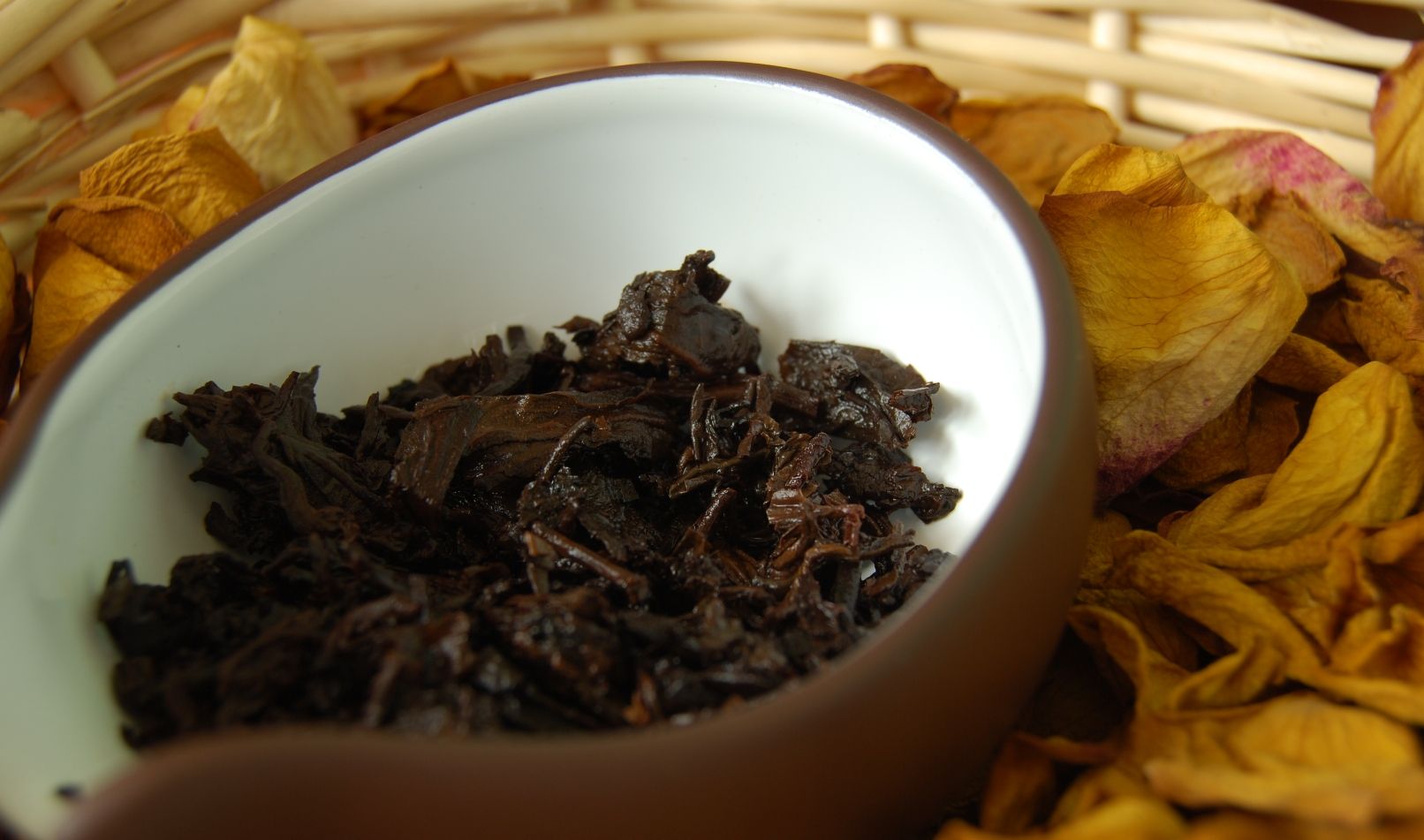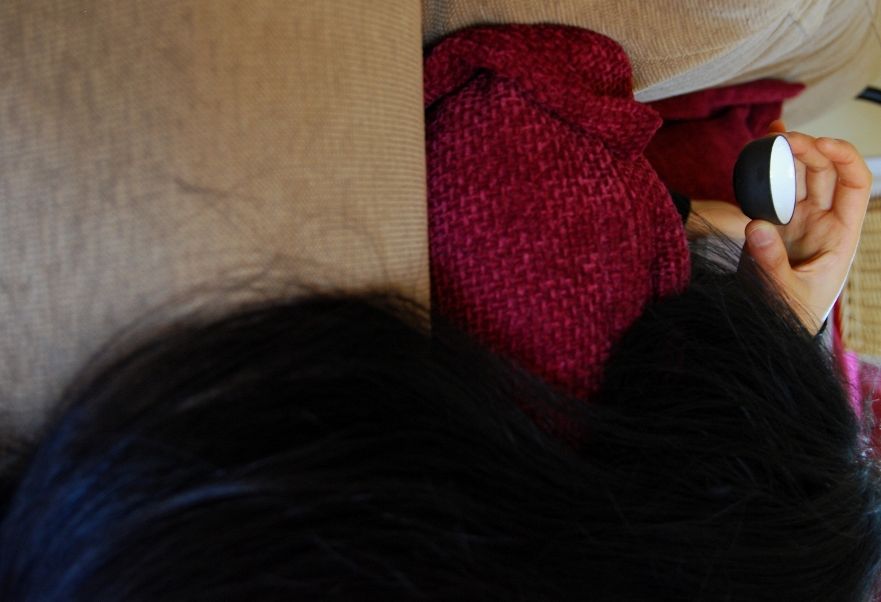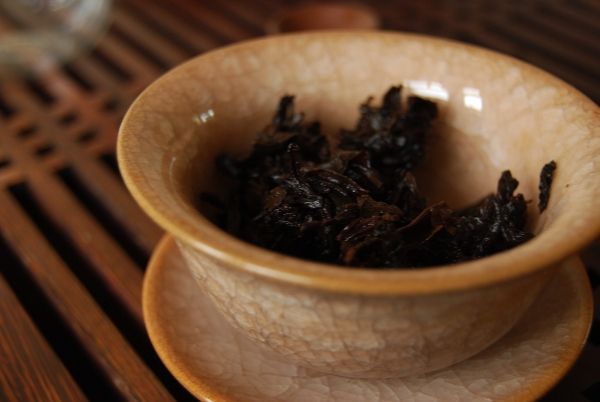It's time for some serious tea today. This is the "89 Qingbing", which has been through some light shicang [SHER-TSANG, wet storage]. Very many thanks to KC/sp1key for the opportunity to try this classic.
You can see the results of shicang in the above photograph: the leaves look a little grey and, if you click to enlarge the photograph, you can see that it is covered in tiny specks of mould. This frightens away some people, but I love shicang - give the leaves a quick rinse in boiling water, and I'm set for a highly enjoyable session.
It certainly looks like the famous 7542 recipe: the leaves are medium-sized fragments of medium-sized leaves, and they are compressed quite tightly together. I'm happy to see that they are turning a rusty orange. Unsurprisingly, the aroma is quietly damp. (I love that damp aroma, for the record.)
It certainly looks like the famous 7542 recipe: the leaves are medium-sized fragments of medium-sized leaves, and they are compressed quite tightly together. I'm happy to see that they are turning a rusty orange. Unsurprisingly, the aroma is quietly damp. (I love that damp aroma, for the record.)
The rich, red colour and its accompanying yellow meniscus remind us that all is well. The scent is vanilla and wood, although it fades rapidly. As one might expect with shicang pu'er, it has a slightly particulate, powdery texture. I like that, but it's all part of the shicang package.
For a 7542, this is surprisingly sweet. After two just cups, it is highly energising. The flavour rushes to the back of the tongue, and there sounds a long note of charming sweet vanilla.
For a 7542, this is surprisingly sweet. After two just cups, it is highly energising. The flavour rushes to the back of the tongue, and there sounds a long note of charming sweet vanilla.

It has a loose, watering feeling, with a certain emptiness in the centre where one might otherwise hope to find complexity and solidity. I wonder to myself if this is because of its storage conditions. However, it ends so very sweetly that all is forgiven.
At the back of the throat lingers the flavours beloved of all those who enjoy 7542, and these continue to resonate in a huigan that seems eternal.
We raise a cup to KC for his generosity...
At the back of the throat lingers the flavours beloved of all those who enjoy 7542, and these continue to resonate in a huigan that seems eternal.
We raise a cup to KC for his generosity...
Addendum
May, 2010
Still pleasant and with that vanilla note from light shicang, but not complex. While it lasted three days of background brewing, it rapidly required long infusions, indicating a lack of stamina.





I have this sample from the same source (don't know if it's from the same cake). I don't remember noticing the sweetness, but it did notice a very odd taste which I'd be hard pressed to describe - maybe kind of like a plastic or freezer-burn kind of taste.
ReplyDeleteHonestly I couldn't taste much else throughout the whole session. I've drank quite a bit of tea that's been wet stored to various degrees (including some pretty "traditional HK storage" early 80s 7542), but this didn't remind me of anything (though it did seem to have some sort of storage issue... maybe that particular cake was stored really close to the ground or something).
One other interesting thing I noticed is that the white frost doesn't seem to have been only on the surface, but actually seemed to be inside the chunk of cake itself. I'm not sure if that means that it was stored broken up for a while or what.
We tried all sorts of tricks to try and get the off taste to go away, but it stuck around.
My drinking companion thought the mouthfeel was good. We both felt like the tea seemed to have pleasant effects on our bodies / mood (which, for me, at least, has often *not* been the case for many wet-stored teas I've tried).
Dear Will,
ReplyDeleteThanks for your notes. Shicang certainly is a polarising characteristic - I love it, some dislike it. Damp, woody, musty - it reminds me of an old library. Old cigars. Heavy Scotch single malt gone awry.
Toodlepip,
Hobbes
My point was that the tea I tried did *not* taste like any wet-stored tea I've ever tried.
ReplyDeleteWet-storage can often have an unpleasant effect on the body/spirit. Interesting. Nice that this tea didn't do that, of course. --Teaternity
ReplyDelete